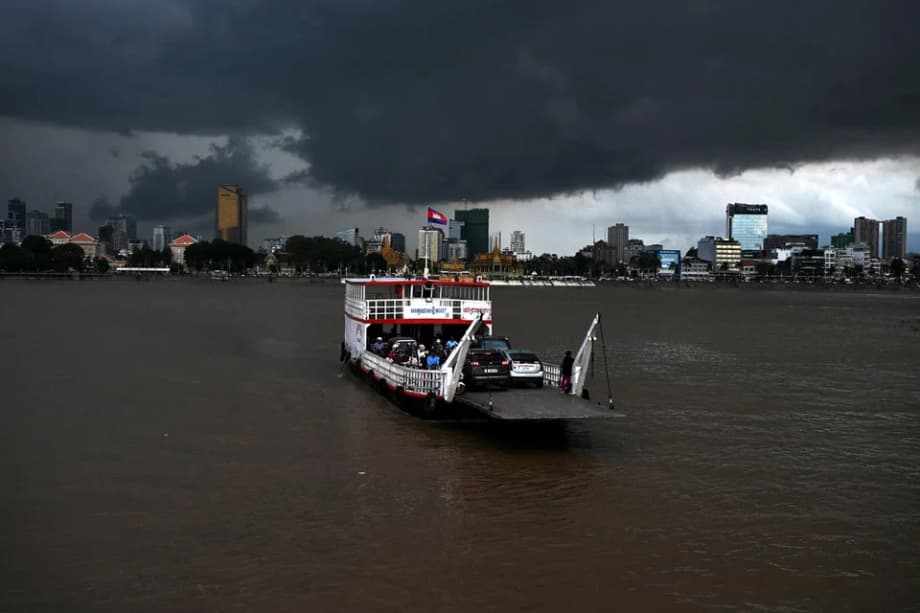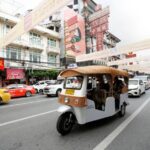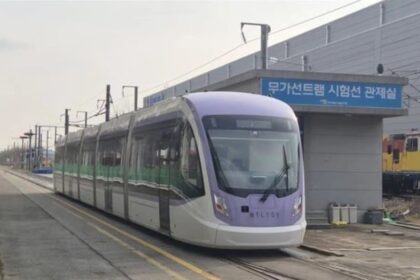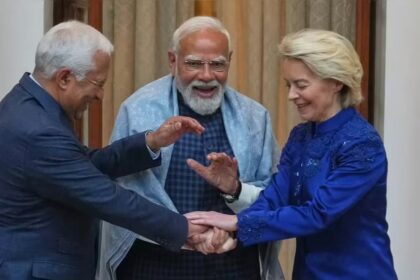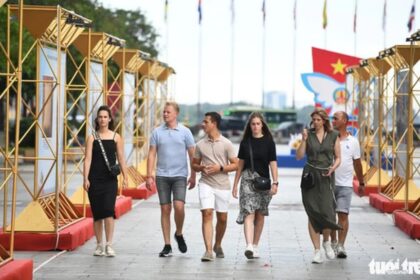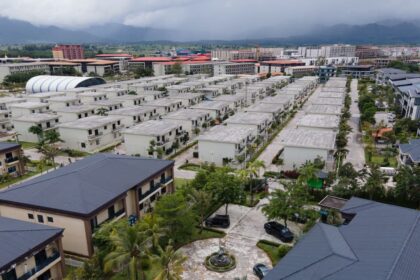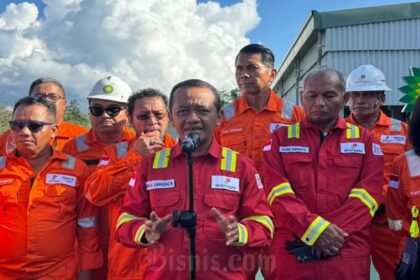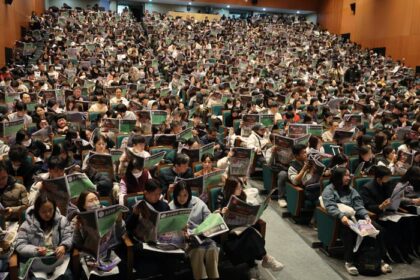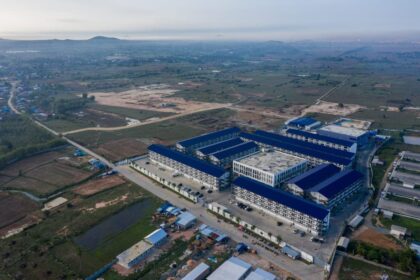What happened and why it matters
South Korea has paused the Cambodia arm of a multinational water resource management effort after a surge in violent crimes targeting South Koreans in the country. The project pairs the United Nations Development Programme with South Korean institutions to strengthen climate resilience in the Mekong River basin, where communities face frequent floods, droughts, and water shortages. The Science and Technology Policy Institute in Seoul, known as STEPI, said the planned transfer of a pilot water supply and management model to Cambodian authorities has been postponed. Work in other participating countries, including Thailand, Vietnam, and Laos, is continuing.
- What happened and why it matters
- Inside the Mekong water resilience initiative
- Crimes targeting South Koreans in Cambodia
- What exactly is paused
- Cambodia’s response and claim of continued cooperation
- Diplomatic stakes for Seoul and Phnom Penh
- Why water security projects matter in the Mekong
- How development groups manage security risks
- What could happen next
- Key Points
The decision reflects rising anxiety in South Korea about the safety of its citizens in parts of Southeast Asia. The Mekong basin work is designed to help rural and peri urban communities secure reliable water through renewable energy systems and better planning. Postponement in Cambodia raises questions about timelines for delivering new water infrastructure and training for local operators, while also highlighting the sometimes fragile conditions in which development projects operate.
Public concern in South Korea spiked after a university student was killed in August in a case tied to criminal groups running online scam operations. In response, Seoul increased diplomatic coordination, launched investigations, and dispatched task forces to locate and rescue nationals detained by criminal networks. On October 18, more than sixty South Koreans who had been held in Cambodia were flown back to Seoul following a government emergency mission in country. Authorities say efforts to identify and assist additional victims are ongoing.
Inside the Mekong water resilience initiative
The Mekong River basin spans several countries and supports tens of millions of people through agriculture, fisheries, and trade. The joint initiative led by UNDP and South Korean partners targets climate and disaster challenges through improved water management. In Cambodia, STEPI and South Korean companies developed a pilot model that applies renewable energy for water pumping and treatment, storage, and more efficient distribution. The approach seeks to reduce operating costs and keep systems functioning during power outages while expanding access to clean water.
Water managers in the basin wrestle with cycles of severe drought and seasonal flooding that disrupt farming and daily life. Rapid urbanization, shifting rainfall patterns, and upstream developments complicate water planning. A resilient model typically combines reliable power sources like solar, local storage tanks, small scale treatment, and sensors for monitoring. The pilot in Cambodia is intended to be handed over to local authorities and communities with training so that they can operate and maintain the systems long term.
Crimes targeting South Koreans in Cambodia
Criminal groups tied to online scams have expanded across parts of Southeast Asia in recent years. These networks often lure job seekers with promises of high pay, then coerce them into fraud operations. Victims report confinement, threats, and violence. South Koreans are among many nationalities affected, and a string of cases in Cambodia placed a spotlight on the issue inside South Korea. The killing of a South Korean student in August shocked the public and intensified calls for action.
How online scam networks ensnare victims
Recruiters advertise overseas jobs through social media and messaging platforms, drawing applicants with claims of easy income in call centers or logistics. Once the victims arrive, they may be transported to compounds and stripped of their documents. Some are forced to contact targets abroad using persuasive scripts or romance ploys. Others are assigned to cryptocurrency frauds or investment schemes. Those who resist face threats or physical punishment. Police raids and international cooperation have disrupted some sites, but the networks change locations and methods to evade detection.
Government rescue operations
After the August killing, the South Korean government stepped up pressure and coordination with authorities in Cambodia. Investigators have pursued suspect networks while consular teams tried to confirm the whereabouts of missing citizens. A government response team traveled to Cambodia to conduct rescue efforts, and more than sixty people returned to Seoul on October 18. Officials say they will continue to track down South Koreans believed to be detained by criminal groups and provide support to those who seek to return.
What exactly is paused
STEPI has postponed a planned ceremony to transfer the Cambodian pilot to local authorities. The Cambodia component of the water project is on hold, while parallel work in Thailand, Vietnam, and Laos moves ahead. The pause focuses on formal handover and local scale up in Cambodia. Technical development and coordination at the regional level may continue in other locations where teams can operate safely.
South Korea also runs a range of official development assistance programs in Cambodia. Officials in Seoul have signaled that security concerns can affect timelines for selected projects. There is no indication of a blanket halt across all programs. Decisions tend to follow security assessments, travel guidance, and the availability of staff who can work in country without undue risk.
Cambodia’s response and claim of continued cooperation
Cambodia’s Ministry of Industry, Science, Technology and Innovation rejected media claims that South Korea had suspended support for the water project. In a press release, the ministry said collaboration with STEPI remains active and that joint work in science, technology, and innovation continues. The ministry also pointed to ongoing cooperation on research and industrial innovation planning, maintaining that relations with South Korean partners are close and productive.
The two positions can both be true within their own scope. Postponing a handover event for a pilot project is a specific step tied to local security conditions. Broader cooperation between agencies, including policy studies and technical exchanges, can still proceed. Cambodian officials are keen to reassure investors and development partners, while South Korean institutions are focused on duty of care for personnel and participants.
Diplomatic stakes for Seoul and Phnom Penh
South Korea and Cambodia have built steady ties through trade, investment, and aid. South Korean businesses operate in manufacturing and services in Cambodia, and many visitors travel in both directions for tourism and work. Development programs funded by South Korea have supported infrastructure, healthcare, education, and training. Both governments have an interest in keeping cooperation stable, since projects often bring skills, financing, and jobs.
Security concerns can change how agencies plan fieldwork and transfer responsibilities. A pause can ripple through hiring, procurement, and training schedules. Cambodian authorities and South Korean agencies have an incentive to improve safety for residents and foreign workers. A reduction in criminal activity that targets foreign nationals would make it easier for teams to proceed with handovers and site operations.
Why water security projects matter in the Mekong
The Mekong basin faces strong climate pressures. Drought can reduce river flow and groundwater recharge, while intense rainfall can overwhelm drainage and flood plains. Farmers need reliable water for crops and livestock, and households need safe water for drinking and sanitation. Without resilient systems, families and local businesses face frequent interruptions that can hurt incomes and health.
Renewable energy driven water systems help reduce operating costs and dependence on grid power. Solar powered pumps can lift water during daylight hours, paired with storage that smooths supply. Small treatment units can remove sediment and pathogens. Remote monitoring can alert operators to leaks or pump failures. The pilot model developed with South Korean support in Cambodia aims to package these tools in a form that local teams can run and maintain.
How development groups manage security risks
Aid agencies and technical institutes use security risk assessments to decide where and how staff can operate. These assessments weigh recent incidents, the ability of local law enforcement to respond, travel logistics, and medical support. Agencies often rely on local partners and community leaders who understand neighborhood conditions. When risk rises, managers can limit travel, shift to remote support, or postpone field activities until conditions improve.
For handover milestones, the presence of engineers, trainers, and government officials is often required. These gatherings can involve travel to rural sites and multiple days in country. When safety cannot be assured, agencies may delay handovers while continuing planning and remote training. The goal is to eventually place equipment and responsibilities in the hands of local authorities who will operate systems for the long term.
What could happen next
The next steps likely involve coordination among STEPI, UNDP, and Cambodian ministries to update risk assessments and agree on a new timeline for the handover. If security conditions improve, technical teams could resume site visits and finalize training for local operators. That process would pave the way for the pilot to be transferred and scaled in additional provinces.
Law enforcement action against scam networks will also shape the outlook. Police cooperation, immigration checks, and scrutiny of compounds that house illegal operations can reduce the threat to residents and foreign nationals. Travel advice from governments will guide staff deployment and scheduling. Agencies will watch these signals closely as they decide when to restart paused activities in Cambodia.
Key Points
- South Korea paused the Cambodia arm of a UNDP linked water project after crimes targeting South Koreans.
- STEPI postponed a planned handover of a renewable energy based water supply pilot to Cambodian authorities.
- Work in Thailand, Vietnam, and Laos continues while the Cambodia component is on hold.
- More than sixty South Koreans were repatriated from Cambodia on October 18 after rescue operations.
- Cambodia’s industry and innovation ministry says cooperation with STEPI remains active despite media reports.
- The initiative seeks to boost climate resilience in the Mekong basin through reliable, clean water systems.
- Security risk management and duty of care shape timelines for fieldwork and handovers.


